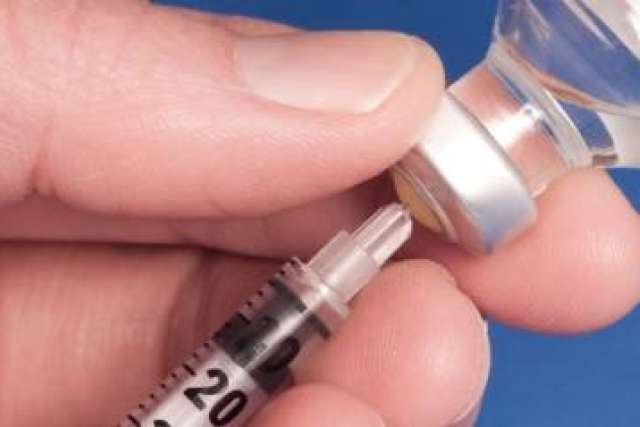As COVID-19 vaccines begin to roll out and treatments expand, unfamiliar terminology will become more common.
It wasn’t long ago that we had to learn what a novel coronavirus was and what it means to flatten the curve. Going forward, we’ll be hearing more about mRNA, monoclonal antibodies and spike proteins.
Here’s a list of terms that will help you understand the rapid developments.

Adverse event: Also called an adverse effect or adverse reaction, this is an unexpected or undesirable health outcome following a vaccine. Local reactions, such as redness at the injection site, are the least severe and most common. Severe adverse reactions, such as anaphylaxis, a potentially life-threatening allergic reaction, are rare.
Antibody: A disease-specific protein produced by the immune system to fight infection.
Antigen: A foreign substance or toxin that triggers an immune response, such as antibody production.
Antiviral: A class of drugs used to treat viral infections. Remdesivir is an antiviral medication approved in October by the U.S. Food & Drug Administration to treat COVID-19.

Clinical trial: A means of testing medical interventions, such as drugs, vaccines or procedures, in human volunteers to assess usefulness, efficacy and safety. Clinical trials for COVID-19 vaccines and treatments compare active medications to inert placebos. Clinical trials in the United States include four phases as outlined by the FDA: Phase 1 involves a small number of volunteers and looks for serious adverse events; Phase 2 focuses on efficacy and short-term adverse events; Phase 3 gathers information on dosage, efficacy and safety in a larger number of volunteers. The fourth phase begins once the tested medication is approved by the FDA for use to study real-life reactions, effectiveness, long-term risks and rare side effects.
Convalescent plasma: Blood plasma donated by people who have recovered from COVID-19 may contain antibodies that help recipients fight the virus. The FDA issued emergency use authorization (EUA) for this treatment.
Emergency use authorization (EUA): This is a way for the FDA to make vaccines and treatments available to the public under emergency circumstances, such as a pandemic, before those interventions have undergone the lengthy formal review process.
Herd immunity: Also called population immunity, this is when a large percentage of a population develops immunity to a virus, generally through vaccine, thus breaking the chain of transmission. Different diseases require different immunity thresholds. Scientists at the World Health Organization estimate that 60% to 70% of the population must have immunity from COVID-19 to stop or significantly slow the spread because the virus is highly transmissible.
Immune system: The complex network of cells and proteins that protect the body from infection.
Messenger RNA (mRNA): Genetic molecules that direct cells to make specific proteins. Vaccine candidates being produced by Pfizer and Moderna rely on messenger RNA, or mRNA, to instruct cells to produce spike proteins.
Monoclonal antibody: A lab-produced synthetic antibody modeled on natural antibodies to target specific foreign or threatening cells. Monoclonal antibodies used in COVID-19 treatments bind to the spikes on the SARS-CoV-2 virus.
Placebo: A harmless, inert substance often used in clinical trials as a means of testing effectiveness of a new medical treatment or intervention. In the COVID-19 vaccine trials, for example, volunteers receive either the experimental vaccine or a placebo and scientists compare how many people in each group develop virus symptoms.
PCR test: A diagnostic test that detects a virus’ genetic material.
Serology test: Also known as an antibody test, this test looks for antibodies produced in response to a virus.
Spike protein: A molecule on the surface of a virus that, in the case of SARS-CoV-2, appears to stimulate a strong antibody response.
Viral vector: A weakened virus used to deliver genetic messages to cells that direct the production of specific proteins. The AstraZeneca COVID-19 vaccine candidate and others in Phase 3 trials use this method to tell cells to make spike proteins.
Related links
What you need to know about a COVID-19 vaccine
FDA-approved COVID-19 test kit gives 30-minute results - but how accurate are they?
